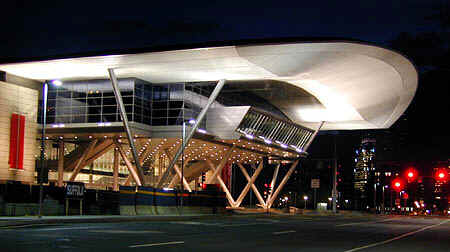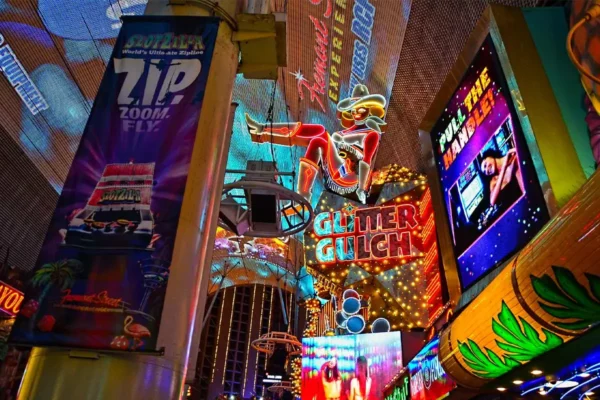With an aim at becoming a top-five destination in North America for tradeshows,conventions and other large events, new hotel construction is planned along with a major expansion of Boston’s 8-year-old convention center complex.

A $2 billion master plan for expanding the Boston Convention and Exhibition Center (BCEC) got the go-ahead from an ad-hoc governing panel in June. And facility officials are working on a $33 million acquisition through eminent domain of a nearby 5.5-acre parcel for new hotel construction, the Boston Herald reported. The lot is located along D Street behind the BCEC and was bought by the Intercontinental Real Estate Corp. for $22 million seven years ago.
Massachusetts Convention Center Authority (MCCA) officials want to use the site to build two mid-sized hotels and parking garages for convention guests and other visitors. The Intercontinental Real Estate firm planned to build a 585-unit housing project on the site but recently agreed to sell the property to the Hanover Co. for $35 million, the Boston Herald reported. The latest action by the MCCA would kill that deal.
MCCA officials have been tight-lipped about their semi-secretive expansion plans with only news reports informing local citizenry about what is going on. And, as with many large-scale development plans, there are critics, particularly in light of the need for taxpayer dollars to complete the various phases of the proposed expansion.
“With the state already deeply in debt and unable to meet the current maintenance needs of its transit system and roadways, any expansion of the Convention Center — including this proposed land grab — is both fiscally insane and, well, simply piggish. It’s time taxpayers said ‘enough,’” the Boston Herald editorial staff wrote Aug. 3.
The potential acquisition is part of a larger plan to build up hotel sites near the convention center to make it a top-five destination for large-scale tradeshows and other events capable of boosting the local economy. The MCCA recently proposed a $2 billion plan to build up the area surrounding the convention center in order to attract more events and visitors pumping more money into the local economy. The ad-hoc Convention Partnership, comprised of 27 area business and governmental leaders, in June approved the $2 billion plan designed to enhance Boston’s standing among the nation’s exhibition industry destinations.
With 516,000 square feet of exhibition space, the BCEC is the largest convention and exhibition center in the northeastern United States. And the $2 billion expansion plan would increase the facility by up to 400,000 square feet to nearly 900,000 square feet of exhibit space while adding another 125,000 square feet of meeting room plus a 75,000-square-foot ballroom. But the additional space means more hotels and parking are needed nearby to attract more large events capable of boosting the local economy.
Boston ranked highly among the nation’s top destinations for meetings and conventions after the convention center opened in 2004. But increased competition from newer convention facilities combined with the recent economic downturn pushed Boston lower on the list of top convention and meetings destinations, forcing local officials to propose a $2 billion expansion of the facility and construction of nearby hotels to boost usage and attendance of the convention center.
To help facilitate expansion, Massachusetts lawmakers recently lifted a ban on further hotel construction south of Summer St. near the BCEC. Commonwealth officials initially enacted the ban on hotel construction in 1997 in response to concerns from local residents that additional hotels would have a negative impact on local neighborhoods. After holding talks with local community representatives, Massachusetts lawmakers in August rescinded the ban and are allowing up to seven new hotels with no more than 2,700 rooms to be constructed south of Summer St.
Officials determined the new hotels and rooms are needed due to the high cost of transporting event attendees from more distant hotels, which can add as much as $1 million to the cost of holding a large event at the BCEC. Convention centers in other cities typically don’t have such transportation issues, giving them an advantage over Boston when looking to attract new tradeshows and other large events.
Two hotels are scheduled to open for business near the convention center by 2014. A 120-room Marriot Residence Inn is being constructed on Congress St. at an estimated cost of about $45 million, and a 135-room boutique hotel is under construction in Seaport Square at a cost of about $50 million. The primary hotel serving the convention center, the Westin Boston Waterfront, is slated for a 320-room expansion while another 680 rooms are scheduled to be added at other hotels nearby.
Another four hotels with a combined 1,000 rooms are planned for Seaport Square, and officials with the MCCA are in discussions with various hotels regarding the addition of another feature hotel for the convention center that would add another 1,000 hotel rooms, the Boston Globe reported.





























